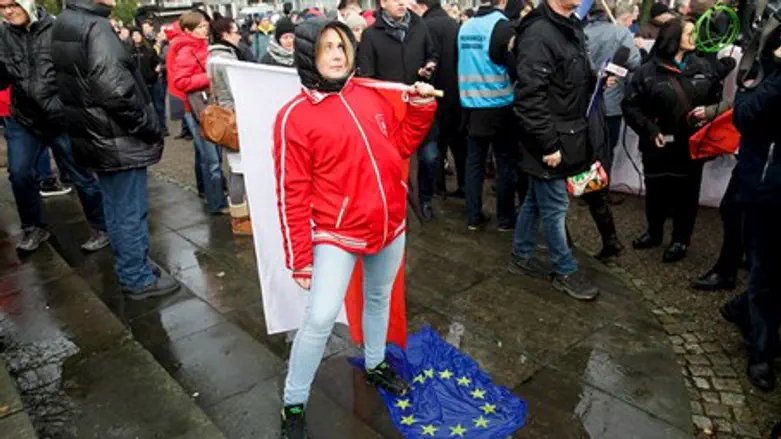
An angered Israel continues to mull its response to the European Union's controversial decision to label Jewish products from Judea, Samaria, and the Golan Heights.
After Prime Minister Binyamin Netanyahu suspended contact with the EU in regard to the Israel-Palestinian conflict over the measure, the Foreign Ministry has also decided to create obstacles for EU countries working to strengthen the Palestinians and impose their own resolution to the conflict.
A senior official told Walla! News that six countries have been "marked" as those who pushed heavily for the labeling initiative - Sweden, Belgium, Ireland, France, Luxembourg and Malta.
"We have seen these six countries leading this move for a long time," the senior official said. "At the same time, some of these countries have been involved in various projects to rehabilitate Gaza as well as civil projects to strengthen the Palestinian Authority in the West Bank. It is important for them to be involved in these processes, and to this day they have received broad cooperation from Israel. That is now going to change - they will encounter difficulties and obstacles."
The goal of implementing these obstacles, the official explained, is "to make clear to countries that pushed the issue of labeling that the price for their behavior is found in the Palestinian arena."
"The decision to suspend political dialogue with the EU is just the beginning," he continued. "Israel has shown a lot of goodwill over the years in the face of various European initiatives for the Palestinians, but it does not make sense to continue this line when Europe radicalizes its own line and is taking steps to label [products] and encourage a boycott" of Israel.
Another official noted that France "is in a somewhat different category" than the rest of these countries, but that "there is a lot of anger" over their behavior, in regard not just to the product labeling but their activity in the UN Security Council, as well.
The Foreign Ministry's recommendations have been transferred to Netanyahu, who also serves as foreign minister, for approval.